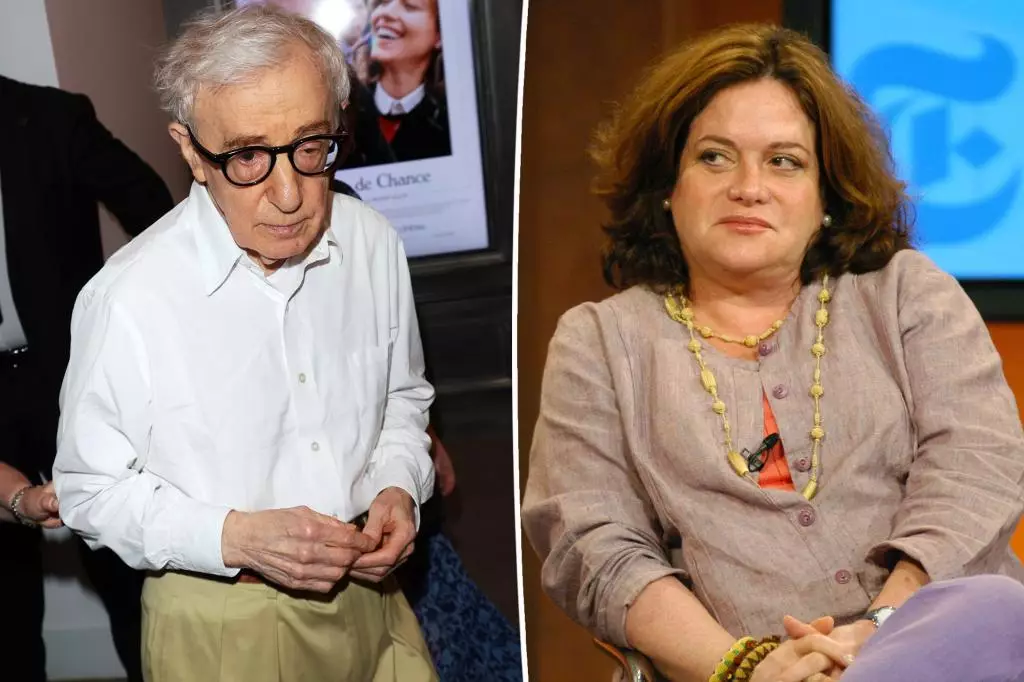In a striking turn of events, followers of Hollywood’s complex narratives were faced with a remarkable sight: Woody Allen, the once-famed director whose career has been overshadowed by the resurgence of unproven allegations post-#MeToo, made an unexpected appearance at a recent literary soirée. The event, held at the elegant Upper East Side residence of esteemed writer Daphne Merkin, provided a rare glimpse into Allen’s public interactions in an environment where he had long been absent. This surprise reentry stirred a mix of curiosity and apprehension, highlighting the ongoing cultural conversation around accountability in the arts.
Networking Amidst Controversy
The gathering was not solely about Allen’s presence; it also marked the launch of a provocative new literary magazine—AFM, a title which playfully stands for either “A F**king Magazine” or “A Feeld Magazine.” This distinct publication emerged from the creative minds behind Feeld, a dating app that focuses on exploring unconventional relationship dynamics. With an array of sexual configurations offered, from traditional pairings to the more eclectic combinations, the magazine set out to challenge societal norms surrounding intimacy and desire. Attending this elaborate party reflected the intersection of literary ambition and modern sexuality, inviting conversation where boundaries between taboo and acceptance blur.
The evening drew an impressive crowd, including literary luminaries such as Candace Bushnell and Emma Cline, among others. Their participation illustrated the magazine’s significance in bridging the arts with contemporary discourse on sexual identity. During the event, guests were treated to intimate readings. Notably, James Ivory and Tony Tulathimutte captivated attendees with poignant reflections, intertwining literary culture with broader themes of happiness and desire. Merkin herself added a layer of mystique to the evening, with her dynamic reading exploring the iconic figures of Marlon Brando and Marilyn Monroe, enhancing the event’s allure and depth.
The juxtaposition of celebrating artistic expression while grappling with the shadows of past controversies encapsulated the night’s essence. Allen’s brief appearance, although warmly received in some circles, reignited discussions around the ethics of celebrating figures with questionable legacies. As perspectives on accountability evolve, gatherings like these serve to reflect society’s fragile balance between honoring creative talents and the implications of their personal choices. The night became a microcosm of the tension inherent in our cultural fabric—enthusiasm for storytelling and a critical examination of the figures who tell those stories.
AFM’s first issue, featuring contributions from prominent writers like Jazmine Hughes and Susanna Moore, promises to further stir the pot with its bold takes on sexuality and identity. Priced at $24, it’s accessible for anyone wishing to delve into the provocative nature of its themes. With its regular publication set to unfold, the magazine aims to create an ongoing dialogue that challenges conventions around intimacy while simultaneously redefining the artist’s role in society, making this literary debut timely and necessary.
While Allen’s presence at the event may have shocked some, it represents the complexity of human experience—both celebrated and scrutinized—as we navigate the intricate relationship between art, culture, and accountability in a modern context.
